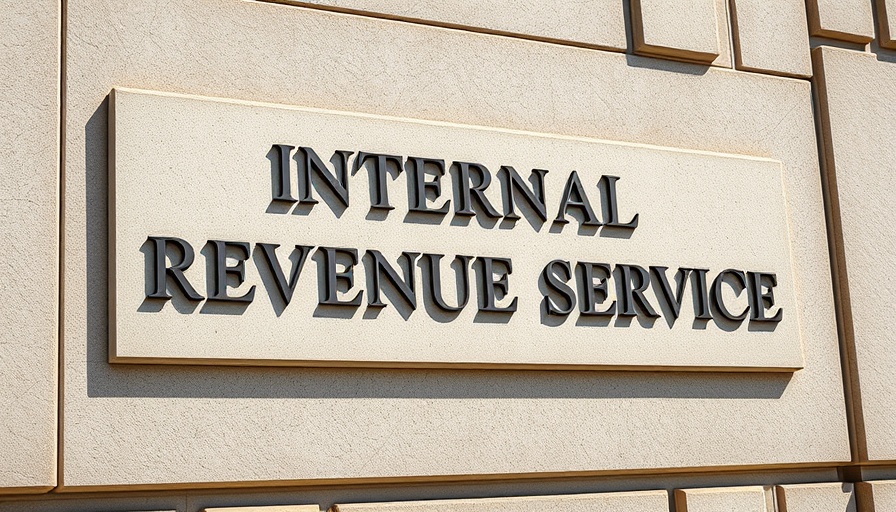
Social Media Seemingly Offers Easy Tax Answers, but Is It Risky?
The Internal Revenue Service (IRS) has issued a stark warning to taxpayers regarding the potential dangers of seeking tax advice through social media platforms. As more and more individuals turn to these outlets for information, the risks of falling prey to fraudulent schemes have increased significantly. James Clifford, the IRS director of Return Integrity and Compliance Services, shared that since 2022, the agency has encountered a steep rise in questionable refund claims, particularly related to the fuel tax credit and sick leave credit. With over 32,000 penalties amounting to $162 million already imposed, the fallout from bad advice is becoming increasingly tangible.
Understanding the IRS's Dirty Dozen
In 2020, the IRS first flagged social media as an individual entry on its annual "Dirty Dozen" list—a collection of twelve notorious tax scams. This designation signifies the agency's commitment to inform the public about the risks associated with chasing advice from unverified sources online. The inclusion of social media advice isn’t an isolated concern; the IRS has warned against the platform’s pitfalls as part of broader scams since at least 2011, especially during the pandemic when misleading financial information surged.
Warning Signs of Scams
Taxpayers need to be vigilant in identifying common traits of social media scams. The IRS outlines several warning signs:
- Too Good to Be True Claims: Posts asserting that everyone qualifies for specific tax credits can appear very attractive but usual reflect misleading information.
- Promises of Quick Refunds: Scams often advertise “easy” refunds with minimal necessary documentation.
- Amended Returns Without Justification: Instructing individuals to file amended returns even if they didn’t originally qualify is a major red flag.
- Encouragement to Ignore Official Communications: Anyone pushing you to disregard IRS letters or advising to misreport information should be approached with extreme caution.
The Problem with TikTok
One platform singled out for its particularly problematic tax advice is TikTok. Erin Collins, the National Taxpayer Advocate, mentioned in a speech at AICPA & CIMA ENGAGE 2024, that federal employees are prohibited from accessing TikTok, which raises concerns about regulating misleading information on that site. She questioned the practicality of countering harmful misinformation from a platform that federal agencies can't utilize.
Broader Implications for Taxpayers
As the IRS continues to battle these misleading schemes, taxpayers must recognize the real-life implications of following unqualified advice. Not only are individuals risking their refunds, but they may also face heavy penalties for filing frivolous returns. Understanding the risks associated with social media advice can safeguard personal finances and tax compliance, ensuring that taxpayers remain informed and cautious.
Practical Tips to Stay Informed
To navigate the complexities of tax filing in an ever-evolving digital landscape, taxpayers are encouraged to:
- Consult Certified Public Accountants (CPAs) or reputable tax professionals for personalized advice.
- Visit official IRS channels and websites for accurate updates about tax credits and filing techniques.
- Foster a critical eye toward financial information shared on social media, identifying the source and validity of posts before acting on them.
Take Charge of Your Tax Returns Today
As complexities increase, so does the responsibility of taxpayers to stay informed. It’s critical to rely on verified sources for tax preparation, ensuring compliance and minimizing the risk of audits or penalties. If you're looking to strengthen your financial literacy and insights, don't hesitate—book your brand voice interview now!
 Add Row
Add Row  Add
Add 




Write A Comment